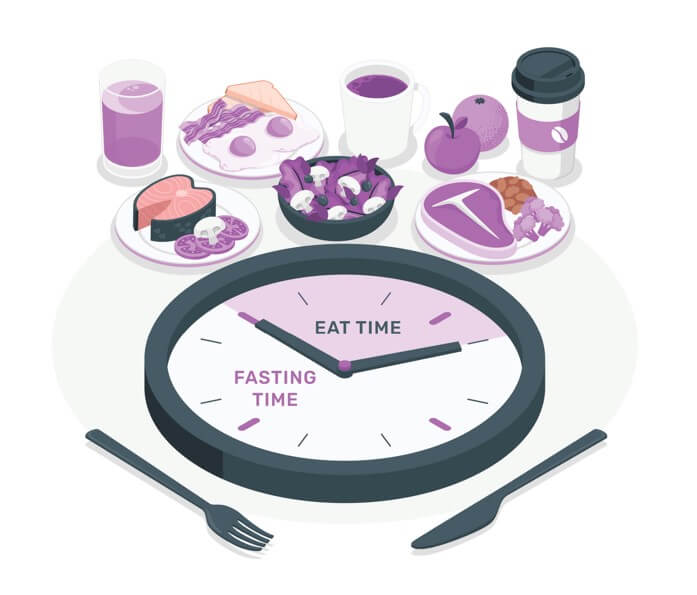The Fasting Diet: Exploring the Health Benefits and Challenges

Fasting diets, also known as intermittent fasting (IF), have gained considerable popularity in recent years as a method for losing weight, improving metabolic health, and even extending lifespan. This dietary approach alternates between periods of eating and fasting, ranging from several hours to a couple of days each week. Despite its rising popularity, it’s essential to understand both the potential benefits and the risks associated with this kind of dietary regimen.
What is a Fasting Diet?

Intermittent fasting involves scheduling periods of voluntary abstinence from food and drink. Several approaches are popular today, including the 16/8 method, which restricts daily eating to an 8-hour window; the 5:2 method, where calories are significantly reduced on two non-consecutive days per week; and the Eat-Stop-Eat method, which involves a 24-hour fast once or twice a week. These methods aim to create calorie deficits through reduced meal frequency rather than limiting specific foods or food groups.
Potential Health Benefits
- Weight Loss and Metabolic Health: One of the most significant benefits of intermittent fasting is weight loss, as it typically leads to a natural reduction in calorie intake. Additionally, fasting periods shift the metabolism from relying on glucose for energy to a greater reliance on fat, a process known as metabolic switching. This can improve insulin sensitivity and lead to reductions in blood sugar levels, which are beneficial for managing or preventing type 2 diabetes.

- Heart Health: Some research suggests that intermittent fasting can improve various risk factors for heart disease, including lowering blood pressure, cholesterol levels, and inflammatory markers.
- Brain Health: There are also implications for neurological health, as fasting can increase the production of brain-derived neurotrophic factor (BDNF), a protein that contributes to the life of brain cells. It may also enhance the brain’s resistance to stress and injury.
- Longevity: Animal studies have shown that intermittent fasting can extend lifespan, although more research is needed to confirm similar effects in humans.
Considerations and Risks
While the benefits can be significant, intermittent fasting is not suitable for everyone. Key considerations include:
- Medical Conditions: Individuals with diabetes, low blood pressure, or a history of eating disorders should consult with a healthcare provider before starting a fasting diet. Women who are pregnant or breastfeeding should also avoid fasting.
- Potential Side Effects: Intermittent fasting can lead to headaches, dizziness, constipation, and dehydration, especially when one is not adequately hydrated or replenishing electrolytes during non-fasting periods.
- Nutrient Intake: There is a risk of nutrient deficiencies if the eating periods do not include balanced, nutrient-rich foods.
- Lifestyle and Sustainability: The sustainability of intermittent fasting can vary widely among individuals. Some may find the diet easy to follow, while others may struggle with hunger pangs, irritability, or fatigue during fasting periods.
Conclusion

Intermittent fasting presents a promising, flexible approach to eating that can lead to various health benefits. However, like any diet, it is essential to consider personal health circumstances and lifestyle factors. Consulting with healthcare providers can ensure that the diet is conducted safely and effectively, tailoring the approach to individual nutritional needs and health conditions. As research evolves, it continues to shed light on the best practices for implementing fasting diets to maximize health benefits while minimizing risks.






